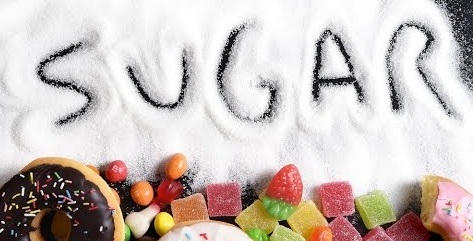
Public Health Ghana advocates for tax increment on sugary products
The Ghana Public Health Association, together with the Ghana Academy of Nutrition and Dietetics University of Ghana is advocating an engagement with the government on a comprehensive action plan for tax increment on all imported sugary beverages into the country.
The group further advocated a restriction of the marketing of these life-threatening sugary products to children.
According to them, a recent research conducted indicated that excessive consumption of these sugary products that had flooded the market were a major contributing factor to the increasing number of obesity and diabetic cases among children and adults in Ghana.
Tax hike
They were of the view that if the government imposed a 20 per cent tax on these imported items deliberately, it would drastically affect their cost and thereby reduce the consumption of sugary drinks to about 20 per cent to protect the health of the people and the nation.
The Project Lead for the Ghana Public Health Association, James M. Amoah, made the appeal during a float organised by the group in Kumasi to raise awareness of these lifestyle diseases.
“We think that as it has begun and worked in other countries such as South Africa. An increase in tax on sugary drinks, like tax on tobacco, will work in Ghana and reduce excessive consumption for a healthy living,” he said.

Dr Abena Akyeamah Bimpeh (left), Ms Cynthia Asante (middle) and a participant holding placards during the float at the Jubilee Park in Kumasi to create awareness of the dangers of excessive consumption of sugary products
Mr Amoah was impressed with the outcome of the float and the desire by residents to change their lifestyle and reduce or possibly stop the excessive consumption of sugary products.
He said there would be more media engagements to get the message across to every Ghanaian to make an informed choice and the importance of living a healthy lifestyle by reducing consumption of sugary drinks.
That, he noted, would contribute to a drastic reduction of related medical conditions such as stroke and diabetes, and the money spent on treating such diseases could be used productively.
Local drinks
Dr Abena Akyeamah Bimpeh, a Medical Superintendent at Juansa Polyclinic in the Ashanti Region, said the human body was created in a way that it needed a limited amount of sugar to function.
She said the excessive intake of these sugary products increased the chances of getting diabetes and higher cholesterol levels that could lead to stroke and heart attack.
She advocated the use and consumption of locally made beverages such as millet drinks and ‘sobolo’ for occasions to reduce the patronage of those life-threatening drinks.
Obesity in children
Dr Bimpeh was particular about the early introduction of these sugary products to children.
According to her, a recent research conducted indicated that excessive consumption of sugary products had contributed to the increase in obesity among children.
She recommended the use of more fruits and fruit juice for children to be taken to school as snacks.
She was hopeful people would adhere to the advice and act accordingly for a healthy living.
A Dietician at the Komfo Anokye Teaching Hospital (KATH), Cynthia Asante, recommended the use of natural fruits as alternative sweetening for beverages instead of all kinds of sugars.
She also advised against the use of sugar in the preparation of sobolo and further encouraged people to avoid the habit of consuming sugary drinks after every meal, which was not a healthy lifestyle.
